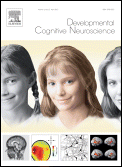
PSYCHOPHYSIOLOGY
Scope & Guideline
Bridging Psychology and Physiology for a Deeper Insight.
Introduction
Aims and Scopes
- Cognitive and Emotional Processing:
Research exploring how cognitive functions and emotional responses are reflected in physiological measures, such as brain activity and heart rate variability. - Neurophysiological Mechanisms:
Studies investigating the neural correlates of behavior, including the use of EEG, fMRI, and other neuroimaging techniques to understand brain function during different tasks. - Psychophysiological Interventions:
Exploration of interventions aimed at modifying physiological responses through cognitive or behavioral strategies, including mindfulness, exercise, and neurofeedback. - Social and Environmental Influences:
Research examining how social interactions and environmental contexts affect physiological responses and psychological states. - Clinical Applications:
Investigations into the psychophysiological underpinnings of various mental health conditions, including anxiety, depression, and stress-related disorders. - Developmental Psychophysiology:
Studies focusing on how psychophysiological processes develop across the lifespan, including childhood, adolescence, and aging.
Trending and Emerging
- Interoception and Emotion Regulation:
Increasing focus on the role of interoceptive awareness in emotional processing and regulation, exploring how physiological awareness influences emotional experiences. - Neuroscience of Social Interactions:
A growing body of research is dedicated to understanding how social dynamics influence physiological responses, with implications for mental health and well-being. - Machine Learning and Big Data in Psychophysiology:
The integration of machine learning techniques to analyze complex psychophysiological data sets is gaining traction, enabling more nuanced insights into behavior and physiology. - Real-World Applications of Psychophysiological Research:
There is an emerging trend towards applying psychophysiological findings to real-world settings, such as workplace stress management and educational environments, enhancing practical relevance. - Cultural and Contextual Influences:
Research increasingly examines how cultural backgrounds and contextual factors shape psychophysiological responses, providing a more comprehensive understanding of individual differences. - Longitudinal Studies on Psychophysiology:
There is a notable increase in longitudinal research designed to track psychophysiological changes over time, particularly in relation to mental health trajectories and resilience.
Declining or Waning
- Traditional Physiological Measures:
While still relevant, there appears to be a waning emphasis on classic physiological measures alone, such as basic heart rate or skin conductance, without integration with cognitive and emotional assessments. - Overly Narrow Focus on Single Modalities:
There has been a shift away from studies that rely solely on one modality (e.g., EEG or fMRI) in favor of more integrative approaches that combine multiple methods to capture the complexity of psychophysiological phenomena. - Static Models of Psychophysiological Responses:
Research employing static models that do not account for the dynamic nature of psychophysiological responses is becoming less common, as newer methodologies emphasize the importance of temporal dynamics.
Similar Journals

Advances in Cognitive Psychology
Cultivating a Community of Cognitive InnovatorsAdvances in Cognitive Psychology is a premier peer-reviewed journal published by UNIV ECONOMICS & HUMAN SCIENCES WARSAW, dedicated to the exploration of psychological processes underlying cognition. With its open access model implemented since 2005, the journal facilitates wide-ranging dissemination of cutting-edge research across various branches of psychology, including applied, clinical, experimental, and cognitive psychology. Despite its modest standing in terms of impact factor, reflected in its Q3 and Q4 rankings across numerous subfields, it remains an important platform for emerging researchers and seasoned professionals alike, aiming to foster insight into complex mental processes and enhance understanding of behavioral patterns. The journal's commitment to accessibility empowers a diverse community of readers, including students, to engage with innovative studies and reviews, contributing to the collective knowledge within the psychological sciences. Located in Poland, Advances in Cognitive Psychology is open for submissions from worldwide researchers, encouraging a global perspective on cognition and behavior.

Frontiers in Behavioral Neuroscience
Transforming Behavioral Insights into Neuroscientific Knowledge.Frontiers in Behavioral Neuroscience is a distinguished journal published by FRONTIERS MEDIA SA, specializing in the intricate relationship between behavior and the underlying neural processes. Established in 2007, this Open Access journal, based in Switzerland, aims to disseminate high-quality, peer-reviewed research that spans both Behavioral and Cognitive Neuroscience, as well as Neuropsychology and Physiological Psychology. With an impressive ranking in the top quartiles of these categories—Q2 in Behavioral and Cognitive Neuroscience and Q1 in Neuropsychology—this journal plays a pivotal role in advancing the understanding of complex behavioral phenomena through a neuroscientific lens. The journal's commitment to open accessibility ensures that groundbreaking findings are available to a wide audience, facilitating collaboration and innovation within the scientific community. As the field continues to evolve, Frontiers in Behavioral Neuroscience remains at the forefront, supporting researchers, professionals, and students alike in their pursuit of knowledge and understanding in this dynamic discipline.

Psychology of Aesthetics Creativity and the Arts
Celebrating the Synergy of Psychology and Artistic EndeavorsPsychology of Aesthetics, Creativity, and the Arts, published by the Educational Publishing Foundation of the American Psychological Association, stands at the forefront of interdisciplinary research, bridging the fields of psychology and the arts. With an ISSN of 1931-3896 and an E-ISSN of 1931-390X, this journal has earned impressive recognition, achieving a 2023 Q1 ranking in Visual Arts and Performing Arts, and placing within the top quartiles for Applied Psychology and Developmental and Educational Psychology. This demonstrates its pivotal role in advancing knowledge about the psychological underpinnings of creativity and aesthetic experience. As a vital platform for researchers, professionals, and students, it offers insights that enhance our understanding of how aesthetic and creative processes impact human behavior and culture. The journal covers a broad range of topics, from artistic expression to cognitive processes related to creativity, making it an essential resource for those invested in the psychological dimensions of artistic endeavors. Although it is not open access, it remains a highly cited resource in its domains, fostering scholarly dialogue and innovation.

Developmental Cognitive Neuroscience
Highlighting groundbreaking discoveries in developmental cognitive neuroscience.Developmental Cognitive Neuroscience is a leading interdisciplinary journal published by ELSEVIER SCI LTD, dedicated to advancing the field of cognitive neuroscience with a specific focus on the developmental aspects of brain function and behavior. Since its inception in 2011, this Open Access journal has continued to thrive, gaining significant recognition with a remarkable impact factor that places it in the Q1 category of cognitive neuroscience, ranking 22nd out of 115 in Scopus. This enhances its visibility and accessibility to a global audience, including researchers, clinicians, and students keen on exploring the intricate relationship between cognitive development and neurological processes. The journal embraces a wide array of topics, from the impact of early life experiences on cognitive outcomes to neurodevelopmental disorders, fostering an enriching platform for disseminating high-quality research and innovative findings. As it progresses towards 2024, Developmental Cognitive Neuroscience remains pivotal in shaping future research and understanding in the field.

INTERNATIONAL JOURNAL OF PSYCHOPHYSIOLOGY
Unraveling the Complexities of Human BehaviorInternational Journal of Psychophysiology, published by Elsevier, stands as a leading academic platform in the disciplines of psychophysiology, neuropsychology, and neuroscience, primarily based in the Netherlands. With an ISSN of 0167-8760 and an E-ISSN of 1872-7697, this journal has been a significant contributor to scientific discourse since its inception in 1983. Recognized for its impact, it holds a Q2 category in multiple fields, including Neuropsychology and Physiological Psychology, Neuroscience, and Medical Physiology, showcasing its relevance and quality within the academic community, including a Scopus ranking of #16 out of 76 in Neuropsychology. The journal offers a robust platform for researchers, professionals, and students keen on exploring the intricate relationships between psychological processes and physiological responses. While it operates on a subscription basis, the absence of Open Access ensures that content remains thoroughly vetted for quality and rigor, making it an essential resource for those at the forefront of psychophysiological research.

Zeitschrift fur Neuropsychologie
Advancing the Frontiers of Neuropsychological ResearchZeitschrift für Neuropsychologie, published by HOGREFE AG in Switzerland, stands as a vital resource for scholars and practitioners in the fields of neuropsychology, cognitive neuroscience, and psychiatry. With an ISSN of 1016-264X and E-ISSN 1664-2902, this journal aims to disseminate high-quality research that enhances understanding of cognitive processes and their implications for mental health. While currently classified in the fourth quartile across relevant categories, including Cognitive Neuroscience and Neuropsychology, it offers valuable insights that contribute to the emerging discourse in these areas. By publishing both empirical studies and theoretical papers, it encourages interdisciplinary dialogues among researchers and clinicians. Although the journal is not Open Access, its role in advancing neuropsychological research is significant, fostering academic linkages from its base in Bern, Switzerland. By continually focusing on the latest advancements and fostering innovative approaches within the field, Zeitschrift für Neuropsychologie remains a crucial platform for those committed to exploring the complexities of the human mind.

COGNITIVE AFFECTIVE & BEHAVIORAL NEUROSCIENCE
Innovating Research: Delving into the Dynamics of Cognition and EmotionCOGNITIVE AFFECTIVE & BEHAVIORAL NEUROSCIENCE (ISSN: 1530-7026, E-ISSN: 1531-135X) is an esteemed journal published by SPRINGER that aims to advance the understanding of the interplay between cognitive processes, affective states, and behavioral responses in the field of neuroscience. Established in 2001, the journal provides a rigorous platform for disseminating high-quality research, with a significant focus on both Behavioral Neuroscience and Cognitive Neuroscience. Classified in Q1 and Q2 quartiles for 2023, it ranks highly within its categories, holding positions of #37 out of 88 and #46 out of 115 respectively in the Scopus listings. Although not an open-access publication, readers can access a wealth of valuable insights and innovative findings that enrich the scientific community's understanding of brain function and behavior. The journal's emphasis on interdisciplinary research contributes to its esteemed reputation, making it a vital resource for students, researchers, and professionals striving to explore the complex nature of the human mind and behavior.

Social Neuroscience
Transforming Perspectives on Social Behavior Through NeuroscienceSocial Neuroscience is a premier academic journal dedicated to advancing the interdisciplinary field that lies at the intersection of social psychology, behavioral neuroscience, and developmental studies. Published by ROUTLEDGE JOURNALS, TAYLOR & FRANCIS LTD, this journal has made significant strides since its establishment in 2006, with a convergence period extending to 2024. It regularly features innovative research articles that explore the neural basis of social behaviors and the impact of social interactions on brain function. Holding esteemed rankings in Scopus, including Q2 status in both Development and Social Psychology categories, it appeals to a broad array of scholars and practitioners keen on understanding human behavior through a neuroscientific lens. The journal's commitment to fostering critical discussions and publishing impactful research makes it an essential resource for professionals, researchers, and students alike who seek to deepen their understanding of the complex interplay between social processes and neural mechanisms.

Annals of Neurosciences
Empowering Interdisciplinary Approaches in NeuroscienceAnnals of Neurosciences, published by SAGE Publications Ltd, is a distinguished journal that serves the vibrant field of neuroscience. With an ISSN of 0972-7531 and E-ISSN 0976-3260, it has been a significant platform for advancing knowledge in various aspects of neuroscience since its inception. The journal, positioned in the Q3 category in the realm of neurosciences (miscellaneous) as of 2023, aims to bridge the gap between basic research and clinical practices, providing a comprehensive forum for the dissemination of innovative research, reviews, and insights within the field. With a convergence period from 2011 to 2024, it continually emphasizes the importance of interdisciplinary approaches in understanding neural mechanisms and their implications for mental health and neurological disorders. The journal's open access options ensure that research findings are widely available, fostering collaboration and dialogue among researchers, professionals, and students globally. Located in London, England, the Annals of Neurosciences stands out as an essential publication for those aiming to stay at the forefront of neuroscience research and application.

Activitas Nervosa Superior Rediviva
Connecting Research and Practice in Mental HealthActivitas Nervosa Superior Rediviva is a peer-reviewed journal dedicated to the fields of neuropsychology, physiological psychology, psychiatry, and mental health research. Published by the esteemed SLOVAK ACADEMY OF SCIENCES, INSTITUTE OF NORMAL AND PATHOLOGICAL PHYSIOLOGY, this journal embraces an open-access model, facilitating the dissemination of critical findings and discussions within these evolving fields. With a focus on innovative studies spanning from 2009 to 2024, it provides a vital platform for researchers and professionals seeking to understand the complexities of the nervous system and related disorders. Although currently classified in the fourth quartile across relevant categories including neuropsychology and psychiatric health, the journal’s commitment to publishing quality research contributes significantly to the ongoing discourse among academics and clinicians alike. Activitas Nervosa Superior Rediviva invites scholars to engage with its content and further strengthen the integration of research and practice in mental health and neurological sciences.